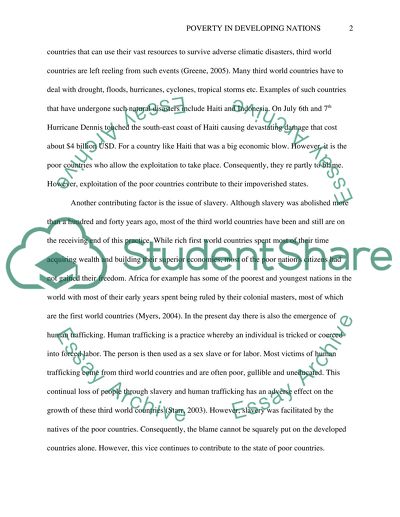Cite this document
(“Poor Nations Are Poor Because the First World Is Rich Essay”, n.d.)
Retrieved de https://studentshare.org/english/1467614-poor-nations-are-poor-because-the-first-world-is-rich
Retrieved de https://studentshare.org/english/1467614-poor-nations-are-poor-because-the-first-world-is-rich
(Poor Nations Are Poor Because the First World Is Rich Essay)
https://studentshare.org/english/1467614-poor-nations-are-poor-because-the-first-world-is-rich.
https://studentshare.org/english/1467614-poor-nations-are-poor-because-the-first-world-is-rich.
“Poor Nations Are Poor Because the First World Is Rich Essay”, n.d. https://studentshare.org/english/1467614-poor-nations-are-poor-because-the-first-world-is-rich.


